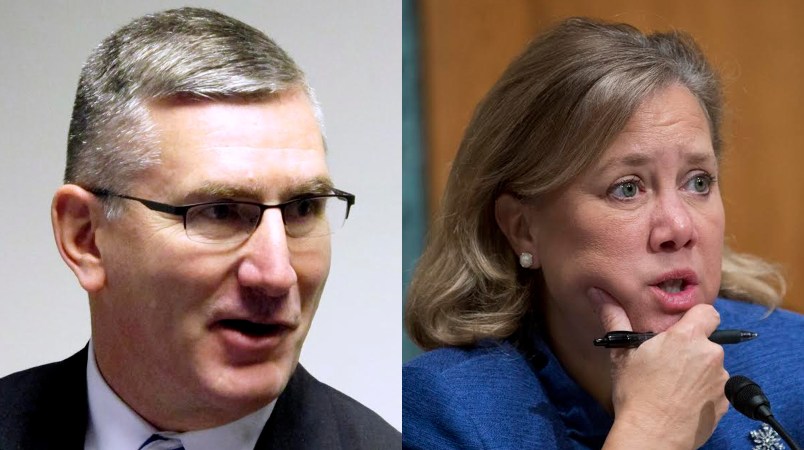The 2014 handicapping is underway, and the consensus is clear: Democrats face a tough battle to maintain control of the Senate. They’re defending too many seats in red states where President Obama and his signature health care reform law are unpopular.
They’re also at a structural disadvantage. Turning out the base, conventional wisdom and historical precedents say, is the key element for midterm elections, and Republicans have done it better.
But Democrats might have a secret weapon in a couple of those key Senate races. Activist groups and state lawmakers are working to get Obamacare’s Medicaid expansion on the ballot in Louisiana and Montana, where they have vulnerable candidates and GOP officials have refused to adopt the provision.
“Turnout is the biggest challenge that Democrats face,” one Democratic operative told TPM. “There are a variety of ways that you can meet your turnout goals, and one of them is certainly ballot initiatives. Medicaid expansion really could be a powerful tool to turn voters out.”
The first trick is getting the question on the ballot. In Montana, activists are required to gather a little more than 24,000 signatures by June 20. The order is taller in Louisiana: getting the GOP-controlled legislature to approve it. Its odds probably aren’t great, local reporters say, but a few GOP lawmakers did express an openness to the expansion last year. The bill has already been introduced in the state Senate by a Democrat.
South Dakota serves as a cautionary tale for the success of this gambit. Democrats there, where the party is trying to hold onto the seat of the retiring Sen. Tim Johnson, had attempted to get Medicaid expansion on the ballot, but it was defeated by Republicans in the state legislature.
It’s not likely to be a silver bullet for saving the Senate, but it could make a difference in what are expected to be tight races. If voters who ordinarily would skip the midterms instead come out because they want to advance Obama’s most important domestic achievement, that can only benefit Democratic Sens. Mary Landrieu (LA) and John Walsh (MT).
The Democratic operative noted that Landrieu and Walsh’s opponents — U.S. Reps. Bill Cassidy and Steve Daines, respectively — have enthusiastically pressed for repealing Obamacare, which is a contrast that Democrats plan to draw throughout the 2014 cycle.
And in an election where holding one or two seats could mean the difference between Senate Majority Leader Harry Reid or Mitch McConnell, Democrats will take any advantage they can get.
As TPM reported last week, historically Democratic constituencies don’t turn out at the same rate during midterm elections as they do for presidential elections. To give one example: Just 36 percent of the electorate in 2010 was ages 18 to 45; 64 percent was older than 45. In 2012, the 18 to 44 demographic spiked to 45 percent.
“There’s a tendency that helps Republicans here and it’s mainly because of age,” John Sides, a political scientist at George Washington University, told TPM. He described age as “the way in which turnout patterns have most clearly worked to the Democrats’ disfavor.”
Aides to Walsh and the state Democratic Party said they were monitoring the Medicaid expansion initiative’s progress, waiting to say more until it is officially certified for the ballot. Landrieu has already criticized Gov. Bobby Jindal for his refusal to implement the expansion in their state.
Polling isn’t available in Montana, but in Louisiana, if the question made it to the ballot, it could be a potent tool. A May 2013 poll of Deep South states found that 63 percent of Louisianans favored Medicaid expansion and, generally across the South, support was higher in key Democratic groups: 85 percent of blacks, 66 percent of women and 66 percent of voters ages 18 to 24.
Broadly, 87 percent of self-identified Democrats said they supported it. Those numbers defy the general unpopularity of Obamacare, which means Medicaid expansion — if singled out, as it would be on a ballot initiative — could be a net winner in getting liberal voters to head to the polls.
“People see the benefits — this is a pocketbook issue for them,” said Jennifer Duffy of the Cook Political Report, in an interview with the Washington Post’s Greg Sargent. Democrats “need to get the base excited about something. This is a silver lining in a tough issue.”






